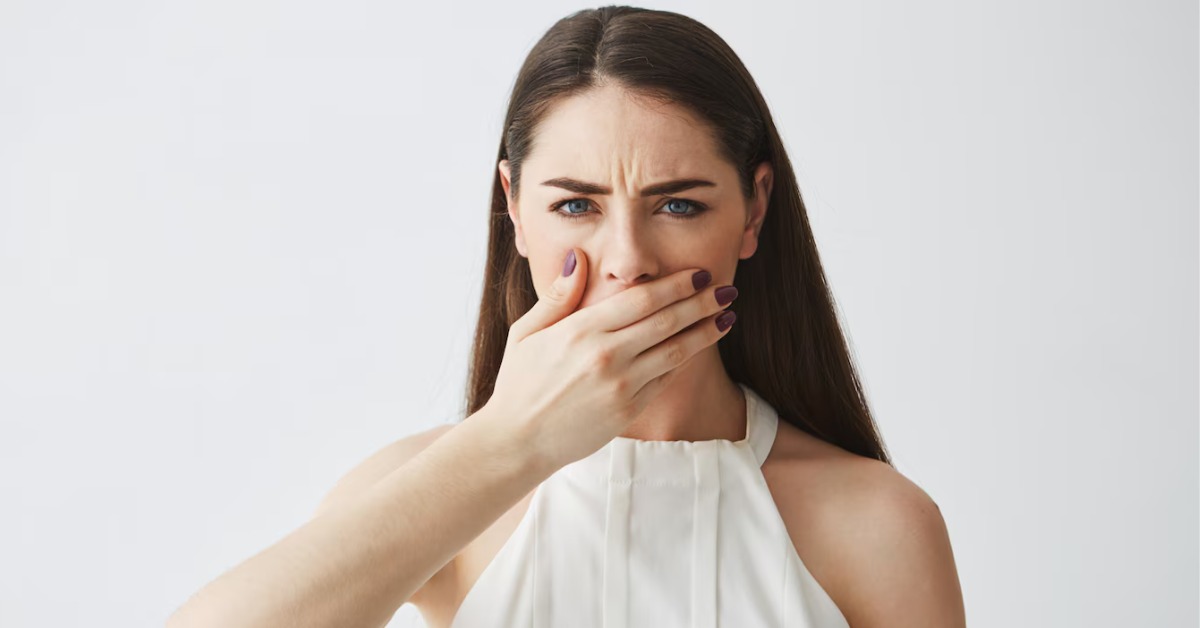Halitosis, commonly known as bad breath, is a condition where an individual experiences unpleasant odors emanating from the mouth. It is a common issue that can affect people of all ages and can impact both physical and mental well-being. Although it is a widespread problem, it should not be taken lightly. With timely diagnosis and treatment, this issue can be managed effectively.
In this article, we will discuss the symptoms, causes, diagnosis, and treatment of halitosis, covering all aspects of this condition to provide a comprehensive understanding.
Symptoms of Halitosis
The primary symptom of halitosis is the foul odor from the mouth, but there are other signs that may accompany bad breath. These include:
- Excessive Saliva: Increased saliva production and thicker saliva can often accompany halitosis.
- Altered Taste: A persistent bad or unusual taste in the mouth is a common symptom.
- Dry Mouth: A feeling of dryness in the mouth is often reported in individuals with halitosis.
- Plaque on Teeth: The buildup of plaque on the teeth can contribute to bad breath.
- Swollen or Bleeding Gums: Swollen gums or bleeding when brushing can also be an indicator of halitosis.
Causes of Halitosis
Halitosis can arise from a variety of causes, some of which are listed below:
1. Dental Problems
- Plaque and Cavities: The accumulation of food particles, bacteria, and plaque on the teeth can lead to unpleasant odors.
- Gum Disease: Gingivitis or periodontitis can cause infection and swelling of the gums, which contributes to bad breath.
- Poor Oral Hygiene: Inadequate brushing and flossing can leave food particles and bacteria in the mouth, leading to foul-smelling breath.
2. Dry Mouth (Xerostomia)
- Insufficient saliva production can lead to dry mouth, which in turn promotes bad breath. This condition may be caused by certain medications, dehydration, or other underlying conditions.
3. Digestive Issues
- Conditions such as Gastroesophageal Reflux Disease (GERD) or stomach ulcers can cause acids to rise into the mouth, resulting in bad breath.
4. Smoking and Tobacco Use
- Smoking and the use of tobacco not only cause plaque buildup on the teeth but also produce unpleasant odors in the mouth.
5. Infections or Inflammation
- Any infection, such as mouth ulcers, throat infections, or sinus infections, can lead to bad breath.
6. Nutritional Deficiencies
- A lack of essential nutrients, such as vitamin B and C, can cause bad breath.
7. Systemic Diseases
- Kidney Issues: Poor kidney function can cause ammonia-like odors in the mouth.
- Diabetes: Uncontrolled blood sugar levels may lead to fruity-smelling breath.
- Liver Dysfunction: Liver problems can also cause foul-smelling breath.
Diagnosis of Halitosis
The diagnosis of halitosis involves various steps and tests performed by a healthcare professional. These methods may include:
- Medical History and Physical Examination: The doctor will begin by taking a detailed medical history and performing a physical examination. This includes checking the teeth, gums, and overall oral health.
- Detection of Bad Breath: A doctor may use tools like a “Volatile Sulfur Compound” (VSC) meter to measure the levels of compounds responsible for bad breath.
- Plaque and Cavity Examination: A thorough examination of the teeth to detect plaque or cavities, which may be contributing to the bad odor.
- Saliva Tests: A test to evaluate the quantity and quality of saliva in the mouth, as low saliva production can cause dry mouth and contribute to bad breath.
- Gastrointestinal Evaluation: If digestive issues are suspected, tests like endoscopy or imaging studies may be performed.
Treatment of Halitosis
The treatment for halitosis depends on the underlying cause. Some common treatment options include:
1. Improved Oral Hygiene
- The first step in managing halitosis is maintaining good oral hygiene. Brush your teeth at least twice a day and floss regularly to remove food particles and plaque. If cavities or plaque are present, visit a dentist for professional cleaning and treatment.
- Mouthwash: Using an antibacterial mouthwash can help eliminate bacteria that cause bad breath.
2. Increasing Saliva Production
- If dry mouth is a contributing factor, drinking water regularly or using saliva-stimulating medications can help.
- Sugar-Free Gum: Chewing sugar-free gum can stimulate saliva production and reduce bad breath.
3. Treating Digestive Disorders
- If conditions like GERD or stomach ulcers are causing bad breath, your doctor may prescribe medication to manage these conditions. Treating the underlying digestive issues can help eliminate bad breath.
4. Quit Smoking and Tobacco Use
- Stopping smoking and avoiding tobacco products can significantly improve oral hygiene and reduce bad breath.
5. Healthy Diet and Lifestyle
- Eating a balanced diet rich in vitamins and minerals can support oral and overall health. Fresh fruits and vegetables, particularly those high in water content, can help keep the mouth fresh.
- Stay Hydrated: Drinking plenty of water throughout the day helps prevent dry mouth and maintains good oral health.
- Adequate Sleep and Stress Management: Ensuring proper sleep and managing stress are important for overall health, including oral health.
6. Medications and Other Treatments
- In some cases, the doctor may prescribe antibiotics or antifungal medications if the halitosis is related to an infection or fungal growth in the mouth.
Doctors and Treatment in Indore
If you are seeking treatment for halitosis in Indore, you can consult various healthcare professionals such as dentists, gastroenterologists, or general practitioners. In Indore, specialists can offer a comprehensive diagnosis and personalized treatment plan based on the underlying cause of your bad breath. Whether it’s a dental issue, digestive problem, or systemic condition, doctors in Indore are well-equipped to handle this condition and provide appropriate treatment options.
Halitosis is a common condition, but it can be effectively managed with timely intervention. The causes of bad breath can range from dental problems and digestive disorders to lifestyle factors and systemic diseases. A proper diagnosis, combined with the right treatment, can help alleviate the issue. If you are in Indore and need treatment, consult a local healthcare professional who can offer expert advice and guide you through the necessary steps to eliminate bad breath and maintain good oral health.
FAQs
1. What is halitosis, and what causes it?
Halitosis, commonly known as bad breath, is a condition where an individual experiences unpleasant odors from the mouth. It can be caused by various factors, including poor oral hygiene, dental issues like cavities and gum disease, dry mouth, digestive disorders, smoking, infections, or even systemic diseases such as diabetes and kidney issues.
2. How can I diagnose halitosis?
Halitosis can be diagnosed through a physical examination by a healthcare professional, who will check your teeth, gums, and overall oral health. They may also use tools like a “Volatile Sulfur Compound” meter to measure the compounds responsible for bad breath. If necessary, additional tests like saliva analysis or gastrointestinal evaluations may be conducted.
3. What are the common treatments for halitosis?
Treatment for halitosis depends on the underlying cause. Common treatments include improving oral hygiene (brushing and flossing), using mouthwash, staying hydrated to avoid dry mouth, quitting smoking, treating digestive issues like GERD, and eating a balanced diet. In some cases, medications or antibiotics may be prescribed for infections or underlying health issues.
4. Can halitosis be a sign of a serious health condition?
Yes, halitosis can sometimes indicate an underlying health condition, such as gastrointestinal issues (like GERD), systemic diseases (like diabetes or kidney disease), or oral infections. If your bad breath persists despite maintaining good oral hygiene, it’s important to consult a healthcare professional to rule out any serious conditions.
5. How can I prevent bad breath?
To prevent bad breath, practice good oral hygiene by brushing and flossing regularly, using mouthwash, and staying hydrated to avoid dry mouth. Eating a balanced diet rich in fresh fruits and vegetables, quitting smoking, and managing stress can also help maintain fresh breath. Regular dental check-ups are essential to detect and treat any oral health issues early.


